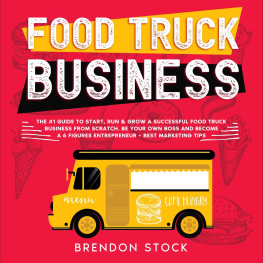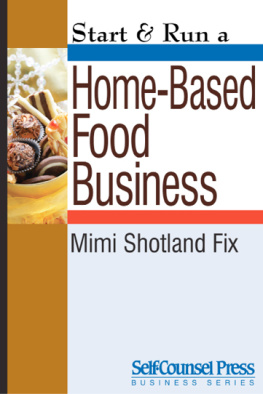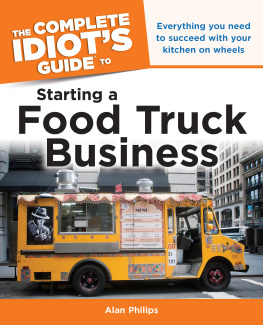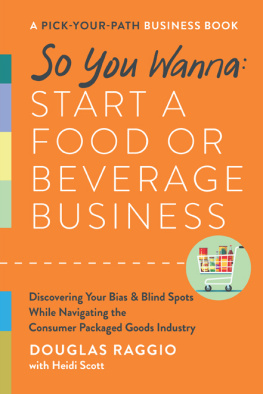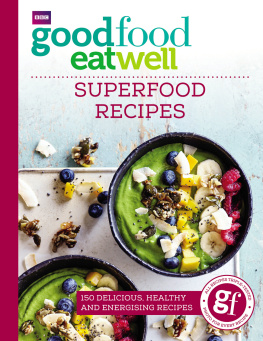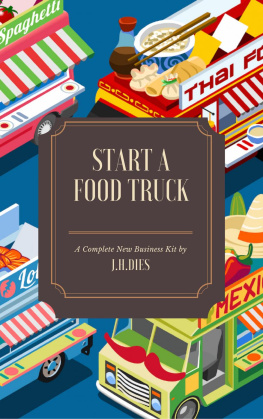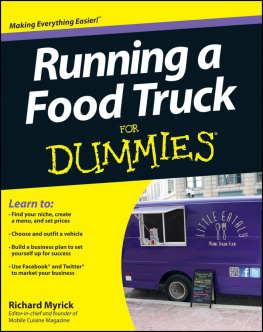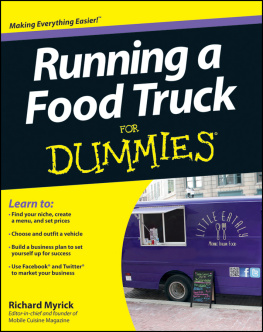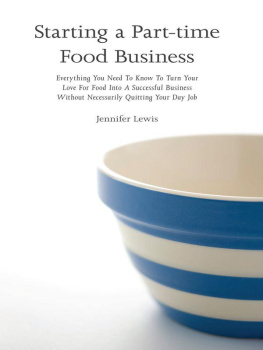
Copyright 2014 by Susie Wyshak.
All rights reserved. No part of this book may
be reproduced in any form without written
permission from the publisher.
Library of Congress Cataloging-in-Publication
Data available.
ISBN 978-1-4521-0708-0 (pb)
ISBN 978-1-4521-2965-5 (ebook, mobi)
Designed by Sara Schneider
Typesetting by DC Typography, Inc.
Chronicle Books LLC
680 Second Street
San Francisco, California 94107
www.chroniclebooks.com
introduction
On January 2, 2011, I marched into Foodzies San Francisco office, declaring I want to write a book about how to start a food business. (It wasnt like a home-invasion kind of thing; I was the food scout for this online artisan-food marketplace.) Along with snow flurries that December, a storm of bacon jam and maple caramels and cheesecakes in jars had descended on epicurious foodies around the country. National magazines had brought more visibility to some of the unique specialty food products wed been selling on Foodzie, and during the busy holiday season, the nuances of food production, packaging, shipping, and assuaging distraught customers became real-time, make-or-break lessons in dos and donts.
For months, small artisan food crafters around the country had confided their challenges to me. Stories of success and misadventures jammed up in my brain like candy on an unattended production line. I wondered why running a food-product business was just so confusing, and decided to seek the answer firsthand. It was finally time to develop my own food productssomething Id talked myself out of since the 80s (yes, Im old) when I first bought Stephen Halls From Kitchen to Market. Within months after diving into business as The Nutless Professor, the clouds parted, and it all became so clear: For every rule in the playbook, there was an exception. This was whydespite tapping into incubator programs, books, seminars, and consultantsmany food entrepreneurs had no choice but to learn from those in the trenches.
I dropped my own business plans to ponder how I could get these hard-knock lessons into the hands of future entrepreneurs. Sometimes your dreams need to simmer until the time is right. And after some serious synchronicity, the time came, and the book was under way.
WHAT CAN THIS BOOK DO FOR YOU?
My quest is to share ideas and tips for starting and running a great specialty food business that I got from actual businesses, from the masters to tiny artisans, who took the plunge and learned the hard way. To make this happen, I canvassed the country and interviewed business owners for insights. This book collects the business wisdom ) with an inside look at their successes, struggles, and strategiesso you can learn the easy way (or easier, anyway). Reading these pages, you will:
- Learn personal habits and business fundamentals that will help you in every walk of life.
- Learn how to choose the business idea or ideas that best fit you and your personality.
- Learn how to determine the viability of those ideas.
- Learn the concrete steps you need to take to make your business a reality.
In each chapter, Inside Scoops share food business stories from seasoned and well-funded companies as well as scrappy and small startups. In addition, Good Ideas spark creative thinking, while Take 5s offer five quick tips about a particular topic.
At the end of every chapter, Takeaways summarize what youve learned, and a Great Business Action Plan gives you a checklist of things to think about and do to make progress. By the time youve digested this book, youll be a master in what I call connecting the dots, with a knack for piecing answers together to get what you want. Youll very likely have refined your business and product ideas. Then, in the last chapter, its time to put your business plan together, step by step, for a real shot at success. Or, after crunching the numbers and reflecting on the realities, you may decide that getting into the food business isnt for you. Either way, youll have learned how to fearlessly pursue your dreamsand thats a recipe for a great life.
Speaking of life, what of that Nutless Professor? In 2013, the California Homemade Food Act went into law, and I once again began dabbling, at least for my local fan base, with selling snacks made in my home kitchen. The rest is TBD, although Im pretty sure that after decades of resisting, my calling is more supporter and writer than crafter. And now, on to discovering your calling....
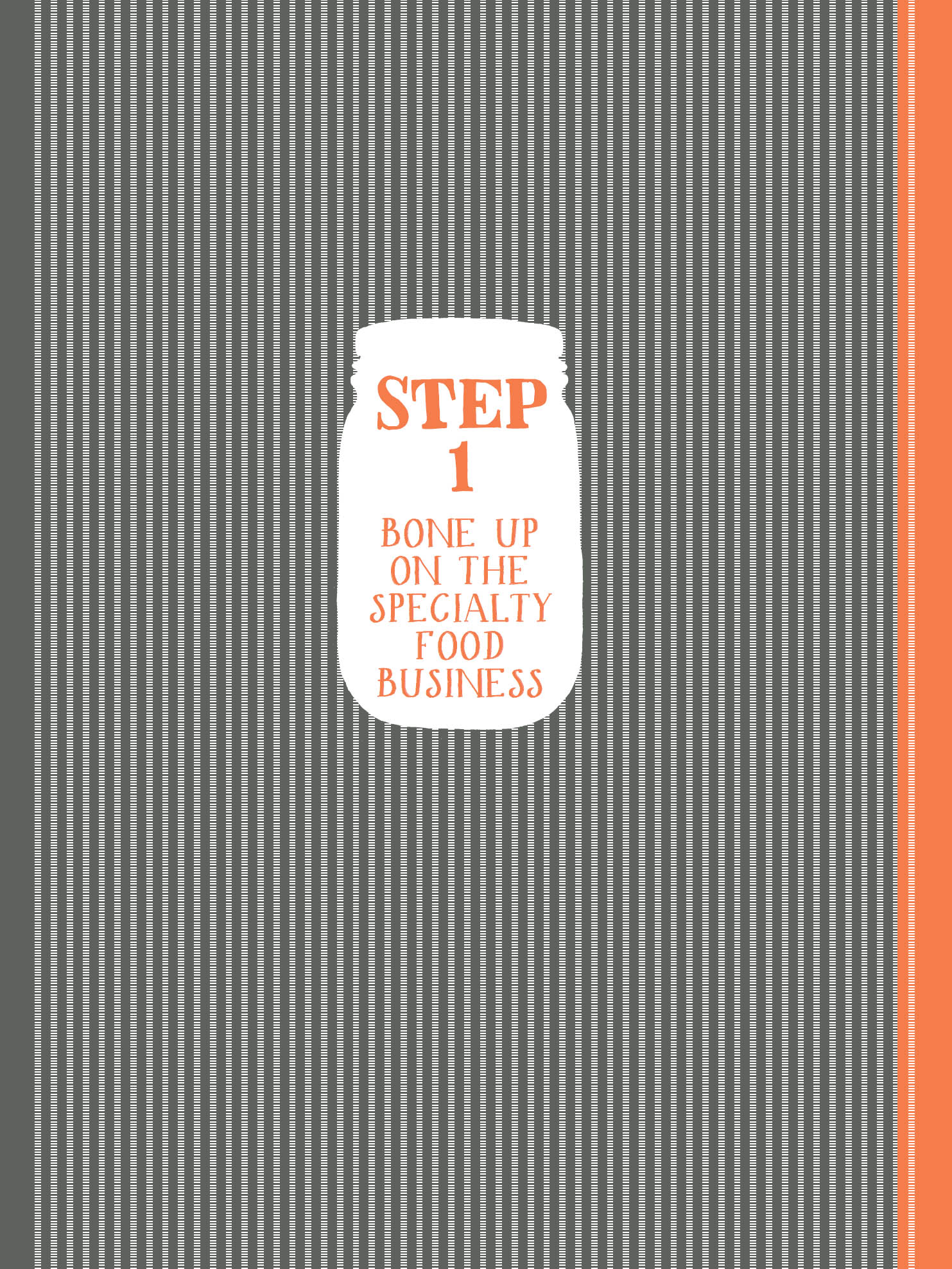
CHAPTER e
learn about the food industry
BURNING QUESTION:
AM I READY FOR ENTREPRENEURSHIP?
Are you hunkered down at your job, clandestinely reading, champing to start your own thing? Youre not alone. The majority of food entrepreneurs seem to be career changers from nonfood industries, driven to start their own ventures and often with the nest eggs to fund them. So much of taking the plunge revolves around overcoming fear: fear of the unknown, of making the wrong decisions, of giving up security. While your fears can melt away with smart planning and decision-making, entrepreneurship isnt for everyone. Read on and track your reactions so you can answer this very important question for yourself.
ABOUT THE GOOD IN GOOD FOOD
What exactly does Good Food mean? A quick Google search on the phrase turns up events, organizations, consultants, products, grocery stores, and the ever-so-useful Good Food Jobs site. Its a bona fide buzz phrase, but for a good reason. Were a world on the brink of bad food threatening our collective future. Overly processed ingredients and pesticide-laden produce abound. By recent counts, 90 percent of our corn is genetically modified. The people out there making Good Food are fighting that tide, and changing the world for the better in the process.
When you think about what food might deserve the lofty title of Good Food, consider these three qualities the Good Food Awards identified after much deliberation:
- TASTY: the product is delicious, and it makes those who eat it happy.
- AUTHENTIC: the product contains high-quality ingredients, including local and seasonal goods, and nothing artificial (including no genetically modified organisms [GMOs] or synthetic pesticides); ideally, the company embraces cultural traditions.
- RESPONSIBLE: when making the product, the company considers the well-being of its workers, its consumers, and the planet. Trust, traceable ingredients, and transparency into how the company does business are paramount.
What makes Good Food different from so-called specialty foods, the prettily packaged foods you find in fancy gourmet shops? Specialty products have their own trade group, the Specialty Food Association, which puts on the twice-yearly Fancy Food Show, North Americas largest specialty food trade show. The association identifies specialty products as having:
- quality, innovation, and style in their category
- originality and authenticity
- a commitment to specific processing rules or traditions, superior ingredients, limited supply, or extraordinary packaging
While specialty foods may not fall under the Good Food definition, due to their ingredients or sourcing practices, many Good Food products are also specialty products, thanks to artful crafting and amazing package design.
Next page

